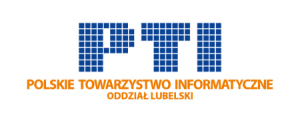Date: 5.12.2019 (Thursday)
Place of opening ceremony and laboratory presentation: Laboratory of Motion Analysis and Interface Ergonomics at the Lublin University of Technology in Poland – room 505, Nadbystrzycka 36C, 20-618 Lublin, Poland
Session’s place: Electrical Engineering and Computer Science Faculty, Lublin University of Technology – room E211, Nadbystrzycka 38A, 20-618 Lublin, Poland
The second International Seminar in Bioinformatics 2019 will be held at the Lublin University of Technology. It will concern various aspects of data analysis.
The main topics include:
- 2D and 3D movement analysis
- medical and sport data analysis
- medical signal analysis
- image processing
- modelling and simulation
- pattern recognition in image processing
- virtual reality
- neural networks
The seminar is organised by Department of Computer Science, Lublin University of Technology and co-organised by Lublin Branch of Polish Information Processing Society.
The participation is free of charge. We invite everyone, after registration via e-mail.
The seminar will take place under the honorary patronage of:
- President of the Lublin Branch of the Polish Information Processing Society,
- His Magnificence, Rector of the Lublin University of Technology,
- Engineering and Technical Sciences Commission of Lublin Branch Polish Academy of Sciences.
Seminar programme
| 9:00-9:20 | Opening ceremony |
| 9:20-9:40 | Optical motion capture system – presentation in Laboratory of Motion Analysis and Interface Ergonomics at the Lublin University of Technology in Poland (J. Smołka) |
| Session 1 (Marek Miłosz, Vice-Dean for Student Experience at Computer Science) | |
| 10:00-10:10 | Choosing the own space of an object by the criterion of compactness (D. Saidov) |
| 10:10-10:20 | Assessment of movement patterns using motion analysis (M. Zawadka, E. Łukasik, M. Skublewska-Paszkowska, J. Smołka, P. Gawda, M. Jablonski) |
| 10:20-10:30 | Control system for optical tweezers with deformable mirror (T. Masato, T. Sugiura) |
| 10:30-10:40 | Observation of Surface Condition of a Seed Irradiated with Atmospheric Pressure Plasma and its Cultivation (Y. Koji, S.-I. Aoqui) |
| 10:40-10:50 | Signalling pathways in eucariota: modeling activity of kinases (A. Bobrowski) |
| 10:50-11:00 | Spine abnormalities detection system (M. Kamiński, D. Czerwiński, R. Czabak-Garbacz, M. Pabisz) |
| 11:00-11:10 | The dynamics of active rods in the confined domain (E. Ratajczyk) |
| 11:10-11:20 | Research on Applied Microbial Technology in the Faculty of Biotechnology and Life Science of Sojo University (M. Kiyokawa, S. Koga, Y. Makino, K. Matsuzaki, M. Nagayoshi, Y. Narahara, K. Ohno, K. Shiiba, H. Tsuda, S. Ikehara, K. Nagahama) |
| 11:20-11:30 | Electrical and structural changes of amorphous carbon nitride thin films induced by exposure to iodine vapor (S. Kudo) |
| 11:30-11:40 | Searching for hidden patterns based on methods for calculating generalized estimates (M. Shavkat) |
| 11:40-11:50 | Lebowitz-Rubinow-Rotenberg model of cell populations development (A. Gregosiewicz) |
| 11:50-12:05 | Effectiveness of the digital museum exhibition (K. Żyła, J. Kęsik) |
| 12:05-12:40 Coffee break | |
| Session 2 (Dariusz Czerwiński, Head of the Department Computer Science) | |
| 12:40-13:10 | Research on electronics and electronic materials in the Electrical and Electronics Engineering Course of University of the Ryukyus (M. Yamazato, S. Fujiko, Y. Ogimi) |
| 13:10-13:20 | Introduction of the Department of Computer Science and Electrical Engineering, Kumamoto University (M. Tanabe) |
| 13:20-13:30 | Japanese spinach planting experiment in ozone-treated soli (Y. Nomaguchi) |
| 13:30-13:40 | The degradation of recalcitrant substance and the increase of nutrient by ozone (K. Nagata) |
| 13:40-13:50 | Research on plant growth evaluation using nutrients obtained from ozone-treated soil (T. Furusawa) |
| 13:50-14:00 | Virtual patient in type 1 diabetes therapy (T. Nowicki) |
| 14:00-14:10 | Environmental problems in Japan and research on energy electronics in Sojo University (T. Shino, E. Sakai) |
| 14:10-14:20 | A three-class classification of cognitive workload based on EEG spectral data (M. Kaczorowska, M. Plechawska – Wójcik, M. Tokovarov) |
| 14:20-14:30 | Modern IT tools in medical data analysis on example of the study ”Assessment of the impact of behavior of medical staff and patients regarding life’s quality and longevity” (R. Czabak-Garbacz, M. Charytanowicz, D. Czerwiński) |
| 14:30-14:40 | Kotlin and Java code performance in data processing (E. Zor, J. Smołka) |
| 14:40-14:50 | Virtual Reality Therapy for Stress Reduction – Preliminary Analysis (M. Badurowicz, S. Skulimowski) |
| 14:50-15:00 | Discussion
Closing the seminar |
Contact person:
Dr. Maria Skublewska-Paszkowska maria.paszkowska@pollub.pl
Committee of the seminar:
Prof. Dariusz Czerwiński
Dr. Maria Skublewska-Paszkowska
Dr. Edyta Łukasik

